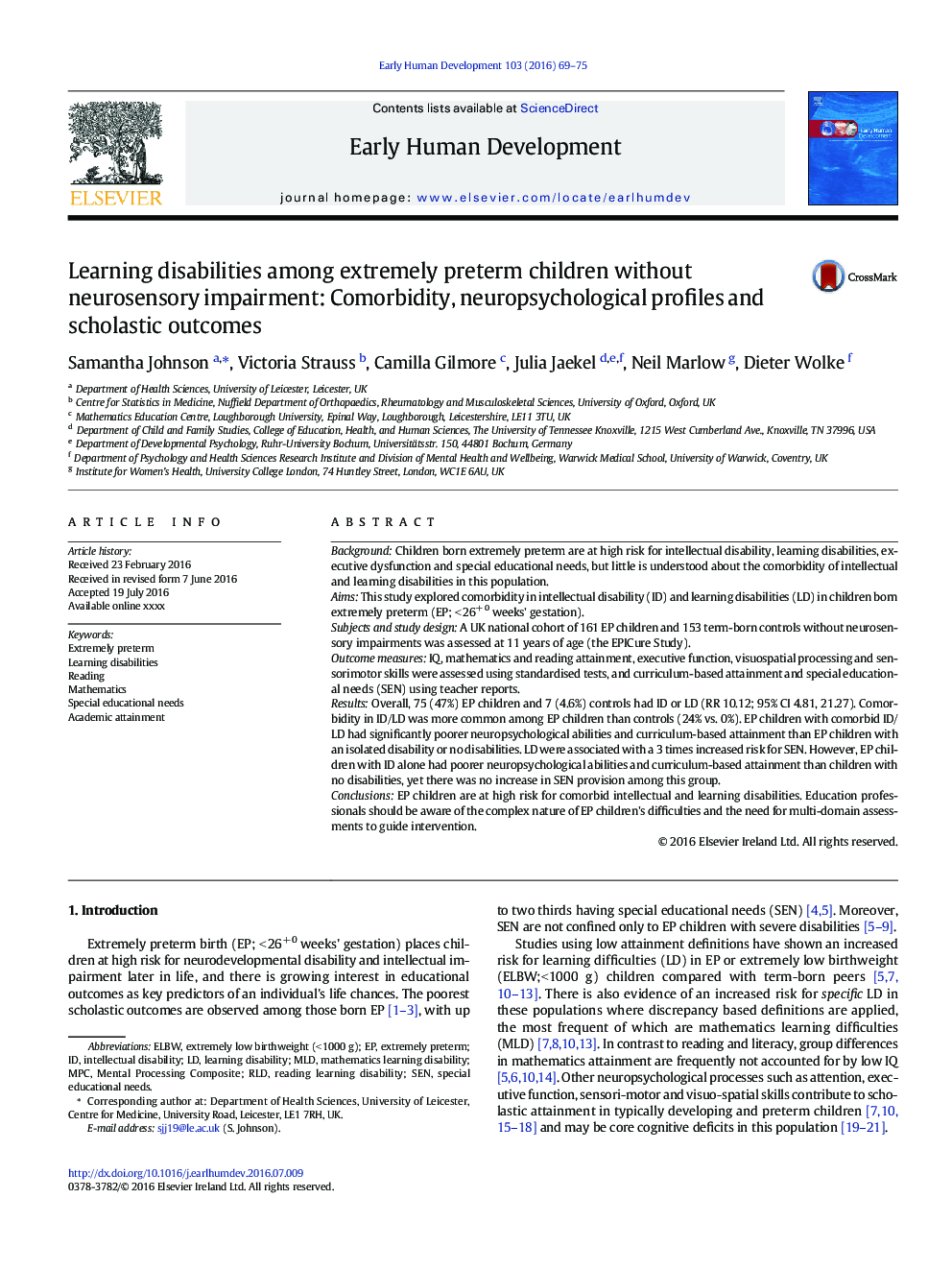| Article ID | Journal | Published Year | Pages | File Type |
|---|---|---|---|---|
| 3916371 | Early Human Development | 2016 | 7 Pages |
•EP children are at increased risk for learning difficulties in mathematics, but not reading.•Comorbidity in intellectual and learning disabilities is common among EP children.•Intellectual and learning disabilities are associated with poor executive function, visuo-spatial and sensori-motor skills.•Professionals should be aware of the need for multi-domain assessments to guide intervention.
BackgroundChildren born extremely preterm are at high risk for intellectual disability, learning disabilities, executive dysfunction and special educational needs, but little is understood about the comorbidity of intellectual and learning disabilities in this population.AimsThis study explored comorbidity in intellectual disability (ID) and learning disabilities (LD) in children born extremely preterm (EP; < 26+ 0 weeks' gestation).Subjects and study designA UK national cohort of 161 EP children and 153 term-born controls without neurosensory impairments was assessed at 11 years of age (the EPICure Study).Outcome measuresIQ, mathematics and reading attainment, executive function, visuospatial processing and sensorimotor skills were assessed using standardised tests, and curriculum-based attainment and special educational needs (SEN) using teacher reports.ResultsOverall, 75 (47%) EP children and 7 (4.6%) controls had ID or LD (RR 10.12; 95% CI 4.81, 21.27). Comorbidity in ID/LD was more common among EP children than controls (24% vs. 0%). EP children with comorbid ID/LD had significantly poorer neuropsychological abilities and curriculum-based attainment than EP children with an isolated disability or no disabilities. LD were associated with a 3 times increased risk for SEN. However, EP children with ID alone had poorer neuropsychological abilities and curriculum-based attainment than children with no disabilities, yet there was no increase in SEN provision among this group.ConclusionsEP children are at high risk for comorbid intellectual and learning disabilities. Education professionals should be aware of the complex nature of EP children's difficulties and the need for multi-domain assessments to guide intervention.
